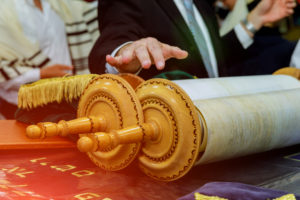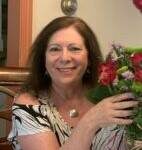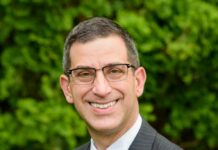
By Rabbi Gregory S. Marx
Parshat Haazinu
Once a little boy had a part in the school play. He was scripted to come out to center stage and say, “It is I: Be not afraid!” But once he finally stood out there in the middle of an empty stage he panicked and cried out, “It’s me, and I am scared!”
We are like that frightened little boy.
America’s longest war in Afghanistan ended with the Taliban taking control. Just as the Vietnam War ended years ago with the collapse of South Vietnam, Afghanistan fell with emergency airlifts of our allies, soldiers and citizens.
Our climate is not only changing; it is collapsing. We are seeing massive fires in the West due to drought and major flooding in the East. Category 4 and 5 hurricanes are becoming the norm, and major areas of our coast will, over the next 20 years, become uninhabitable.
Some have said that offsetting our carbon footprint by planting trees is already too little too late. Like an addict, we have become dependent on an energy source — fossil fuel — which is killing us and our future.
And in Washington, D.C., we see a pathological hatred of the other’s political party. Partisan opponents are willing to die or kill others in order to see the other fail. This terrifies me.
That brings me to Haazinu, Deuteronomy 32.
In it, Moses, following his journey out of bondage to the border of Israel, readies himself and his people for his exit from the scene. About to die, Moses chooses Joshua to move the people forward.
Can you imagine the fear of that moment? Moses, the greatest of all Jewish leaders, the most effective, the one with the closest relationship with God, the lawgiver, the intercessor on the people’s behalf, is about to leave the people. Moses knew all too well that the Israelites made tragic mistakes when he was absent. While he was on Mount Sinai, he delayed in returning; the people panicked and made the golden calf. Perhaps the same would happen again.
But there is a sliver of hope in Haazinu. It says, “The Lord spoke to Moses in the middle of the day.” Rashi, the Biblical commentator noted that this phrase is used three times to describe three different events in the Torah. The phrase signifies courage, faith and hope. At night when there are no spectators, when we are alone, we can be afraid. We cannot even see our enemies. But “in the middle of the day,” we can act with courage, have heart and believe in triumph.
First, Noah prepared the ark that was to save his family from environmental disaster. The Torah states, “in the middle of that day Noah came into the Ark.” Second, the Israelites left bondage in Egypt in the middle of the day. They did not sneak out of Egypt, but rather departed in full view of their enslavers. “In the middle of the day, God brought the Children of Israel out of slavery in Egypt.” The third time is when Moses in Haazinu went up to Mount Nebo and turned over his leadership to Joshua, “in the middle of the day.”
We are in the middle of the day. No matter how dark things may seem, we can still have hope.
I grew up in South Florida during the Cuban Missile Crisis. I remember being told by my second-grade teacher to “duck and cover” in case of a nuclear attack. Like a trusting child, I somehow believed that my wooden desk, with a spot of an ink well, would protect me from a nuclear blast. But somehow it was still the middle of the day. Nuclear sanity prevailed between the two superpowers.
Later, when in high school, we were in the middle of the Cold War with the Soviet Union, and so many feared the “end of time.” One of my favorite movies was “Dr. Strangelove or: How I Learned to Stop Worrying and Love the Bomb.” It was hilarious but also quite terrifying. Those, too, were dark times, yet it was the middle of the day.
And then there were the race riots and civil rights protests that tore our country apart in the ’60s and 70s. But it was the middle of the day.
Even in 1967, just before the Six-Day War, Jews were panicked about the end of Israel. Israelis were digging thousands of graves in anticipation of the conflict. But it was the middle of the day. In all cases, we somehow never gave up hope.
Hope is essential; faith is critical. Without it, we will find ourselves in the darkness of despair, and that can overwhelm us. But with it, with resolution of heart, and an imagination based on wisdom, science and character to see us through the crises, we will find ourselves “in the middle of the day.”
Rabbi Gregory Marx is the senior rabbi of Congregation Beth Or in Ambler and the co-president of the Board of Rabbis of Greater Philadelphia. The board is proud to provide diverse perspectives on Torah commentary for the Jewish Exponent. The opinions expressed in this column are the author’s own and do not reflect the view of the Board of Rabbis.





